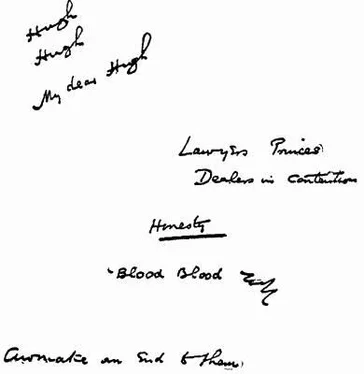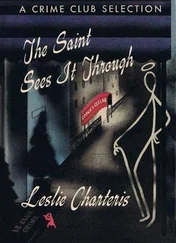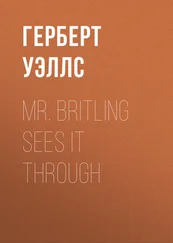Herbert Wells - Mr. Britling Sees It Through
Здесь есть возможность читать онлайн «Herbert Wells - Mr. Britling Sees It Through» весь текст электронной книги совершенно бесплатно (целиком полную версию без сокращений). В некоторых случаях можно слушать аудио, скачать через торрент в формате fb2 и присутствует краткое содержание. Жанр: Классическая проза, на английском языке. Описание произведения, (предисловие) а так же отзывы посетителей доступны на портале библиотеки ЛибКат.
- Название:Mr. Britling Sees It Through
- Автор:
- Жанр:
- Год:неизвестен
- ISBN:нет данных
- Рейтинг книги:4 / 5. Голосов: 1
-
Избранное:Добавить в избранное
- Отзывы:
-
Ваша оценка:
- 80
- 1
- 2
- 3
- 4
- 5
Mr. Britling Sees It Through: краткое содержание, описание и аннотация
Предлагаем к чтению аннотацию, описание, краткое содержание или предисловие (зависит от того, что написал сам автор книги «Mr. Britling Sees It Through»). Если вы не нашли необходимую информацию о книге — напишите в комментариях, мы постараемся отыскать её.
Mr. Britling Sees It Through — читать онлайн бесплатно полную книгу (весь текст) целиком
Ниже представлен текст книги, разбитый по страницам. Система сохранения места последней прочитанной страницы, позволяет с удобством читать онлайн бесплатно книгу «Mr. Britling Sees It Through», без необходимости каждый раз заново искать на чём Вы остановились. Поставьте закладку, и сможете в любой момент перейти на страницу, на которой закончили чтение.
Интервал:
Закладка:
"You've not met him before?"
"I missed him by twenty-four hours when he came through Boston on the last occasion. Just twenty-four hours. It was a matter of very great regret to me."
"I wish I'd been paid to travel round the world."
"You must write things like Mr. Britling and then Mr. Kahn will send you."
"Don't you think if I promised well?"
"You'd have to write some promissory notes, I think—just to convince him it was all right."
The young lady reflected on Mr. Britling's good fortune.
"He saw India. He saw Japan. He had weeks in Egypt. And he went right across America."
Mr. Direck had already begun on the liner to adapt himself to the hopping inconsecutiveness of English conversation. He made now what he felt was quite a good hop, and he dropped his voice to a confidential undertone. (It was probably Adam in his first conversation with Eve, who discovered the pleasantness of dropping into a confidential undertone beside a pretty ear with a pretty wave of hair above it.)
"It was in India, I presume," murmured Mr. Direck, "that Mr. Britling made the acquaintance of the coloured gentleman?"
"Coloured gentleman!" She gave a swift glance down the table as though she expected to see something purple with yellow spots. "Oh, that is one of Mr. Lawrence Carmine's young men!" she explained even more confidentially and with an air of discussing the silver bowl of roses before him. "He's a great authority on Indian literature, he belongs to a society for making things pleasant for Indian students in London, and he has them down."
"And Mr. Lawrence Carmine?" he pursued.
Even more intimately and confidentially she indicated Mr. Carmine, as it seemed by a motion of her eyelash.
Mr. Direck prepared to be even more sotto-voce and to plumb a much profounder mystery. His eye rested on the perambulator; he leant a little nearer to the ear.... But the strawberries interrupted him.
"Strawberries!" said the young lady, and directed his regard to his left shoulder by a little movement of her head.
He found one of the boys with a high-piled plate ready to serve him.
And then Mrs. Britling resumed her conversation with him. She was so ignorant, she said, of things American, that she did not even know if they had strawberries there. At any rate, here they were at the crest of the season, and in a very good year. And in the rose season too. It was one of the dearest vanities of English people to think their apples and their roses and their strawberries the best in the world.
"And their complexions," said Mr. Direck, over the pyramid of fruit, quite manifestly intending a compliment. So that was all right.... But the girl on the left of him was speaking across the table to the German tutor, and did not hear what he had said. So that even if it wasn't very neat it didn't matter....
Then he remembered that she was like that old daguerreotype of a cousin of his grandmother's that he had fallen in love with when he was a boy. It was her smile. Of course! Of course!... And he'd sort of adored that portrait.... He felt a curious disposition to tell her as much....
"What makes this visit even more interesting if possible to me," he said to Mrs. Britling, "than it would otherwise be, is that this Essex country is the country in which my maternal grandmother was raised, and also long way back my mother's father's people. My mother's father's people were very early New England people indeed.... Well, no. If I said Mayflower it wouldn't be true. But it would approximate. They were Essex Hinkinsons. That's what they were. I must be a good third of me at least Essex. My grandmother was an Essex Corner, I must confess I've had some thought—"
"Corner?" said the young lady at his elbow sharply.
"I was telling Mrs. Britling I had some thought—"
"But about those Essex relatives of yours?"
"Well, of finding if they were still about in these parts.... Say! I haven't dropped a brick, have I?"
He looked from one face to another.
" She's a Corner," said Mrs. Britling.
"Well," said Mr. Direck, and hesitated for a moment. It was so delightful that one couldn't go on being just discreet. The atmosphere was free and friendly. His intonation disarmed offence. And he gave the young lady the full benefit of a quite expressive eye. "I'm very pleased to meet you, Cousin Corner. How are the old folks at home?"
§ 10
The bright interest of this consulship helped Mr. Direck more than anything to get the better of his Robinson-anecdote crave, and when presently he found his dialogue with Mr. Britling resumed, he turned at once to this remarkable discovery of his long lost and indeed hitherto unsuspected relative. "It's an American sort of thing to do, I suppose," he said apologetically, "but I almost thought of going on, on Monday, to Market Saffron, which was the locality of the Hinkinsons, and just looking about at the tombstones in the churchyard for a day or so."
"Very probably," said Mr. Britling, "you'd find something about them in the parish registers. Lots of our registers go back three hundred years or more. I'll drive you over in my lil' old car."
"Oh! I wouldn't put you to that trouble," said Mr. Direck hastily.
"It's no trouble. I like the driving. What I have had of it. And while we're at it, we'll come back by Harborough High Oak and look up the Corner pedigree. They're all over that district still. And the road's not really difficult; it's only a bit up and down and roundabout."
"I couldn't think, Mr. Britling, of putting you to that much trouble."
"It's no trouble. I want a day off, and I'm dying to take Gladys——"
"Gladys?" said Mr. Direck with sudden hope.
"That's my name for the lil' car. I'm dying to take her for something like a decent run. I've only had her out four times altogether, and I've not got her up yet to forty miles. Which I'm told she ought to do easily. We'll consider that settled."
For the moment Mr. Direck couldn't think of any further excuse. But it was very clear in his mind that something must happen; he wished he knew of somebody who could send a recall telegram from London, to prevent him committing himself to the casual destinies of Mr. Britling's car again. And then another interest became uppermost in his mind.
"You'd hardly believe me," he said, "if I told you that that Miss Corner of yours has a quite extraordinary resemblance to a miniature I've got away there in America of a cousin of my maternal grandmother's. She seems a very pleasant young lady."
But Mr. Britling supplied no further information about Miss Corner.
"It must be very interesting," he said, "to come over here and pick up these American families of yours on the monuments and tombstones. You know, of course, that district south of Evesham where every other church monument bears the stars and stripes, the arms of departed Washingtons. I doubt though if you'll still find the name about there. Nor will you find many Hinkinsons in Market Saffron. But lots of this country here has five or six hundred-year-old families still flourishing. That's why Essex is so much more genuinely Old England than Surrey, say, or Kent. Round here you'll find Corners and Fairlies, and then you get Capels, and then away down towards Dunmow and Braintree Maynards and Byngs. And there are oaks and hornbeams in the park about Claverings that have echoed to the howling of wolves and the clank of men in armour. All the old farms here are moated—because of the wolves. Claverings itself is Tudor, and rather fine too. And the cottages still wear thatch...."
He reflected. "Now if you went south of London instead of northward it's all different. You're in a different period, a different society. You're in London suburbs right down to the sea. You'll find no genuine estates left, not of our deep-rooted familiar sort. You'll find millionaires and that sort of people, sitting in the old places. Surrey is full of rich stockbrokers, company-promoters, bookies, judges, newspaper proprietors. Sort of people who fence the paths across their parks. They do something to the old places—I don't know what they do—but instantly the countryside becomes a villadom. And little sub-estates and red-brick villas and art cottages spring up. And a kind of new, hard neatness. And pneumatic tyre and automobile spirit advertisements, great glaring boards by the roadside. And all the poor people are inspected and rushed about until they forget who their grandfathers were. They become villa parasites and odd-job men, and grow basely rich and buy gramophones. This Essex and yonder Surrey are as different as Russia and Germany. But for one American who comes to look at Essex, twenty go to Godalming and Guildford and Dorking and Lewes and Canterbury. Those Surrey people are not properly English at all. They are strenuous. You have to get on or get out. They drill their gardeners, lecture very fast on agricultural efficiency, and have miniature rifle ranges in every village. It's a county of new notice-boards and barbed-wire fences; there's always a policeman round the corner. They dress for dinner. They dress for everything. If a man gets up in the night to look for a burglar he puts on the correct costume—or doesn't go. They've got a special scientific system for urging on their tramps. And they lock up their churches on a week-day. Half their soil is hard chalk or a rationalistic sand, only suitable for bunkers and villa foundations. And they play golf in a large, expensive, thorough way because it's the thing to do.... Now here in Essex we're as lax as the eighteenth century. We hunt in any old clothes. Our soil is a rich succulent clay; it becomes semi-fluid in winter—when we go about in waders shooting duck. All our fingerposts have been twisted round by facetious men years ago. And we pool our breeds of hens and pigs. Our roses and oaks are wonderful; that alone shows that this is the real England. If I wanted to play golf—which I don't, being a decent Essex man—I should have to motor ten miles into Hertfordshire. And for rheumatics and longevity Surrey can't touch us. I want you to be clear on these points, because they really will affect your impressions of this place.... This country is a part of the real England—England outside London and outside manufactures. It's one with Wessex and Mercia or old Yorkshire—or for the matter of that with Meath or Lothian. And it's the essential England still...."
Читать дальшеИнтервал:
Закладка:
Похожие книги на «Mr. Britling Sees It Through»
Представляем Вашему вниманию похожие книги на «Mr. Britling Sees It Through» списком для выбора. Мы отобрали схожую по названию и смыслу литературу в надежде предоставить читателям больше вариантов отыскать новые, интересные, ещё непрочитанные произведения.
Обсуждение, отзывы о книге «Mr. Britling Sees It Through» и просто собственные мнения читателей. Оставьте ваши комментарии, напишите, что Вы думаете о произведении, его смысле или главных героях. Укажите что конкретно понравилось, а что нет, и почему Вы так считаете.






